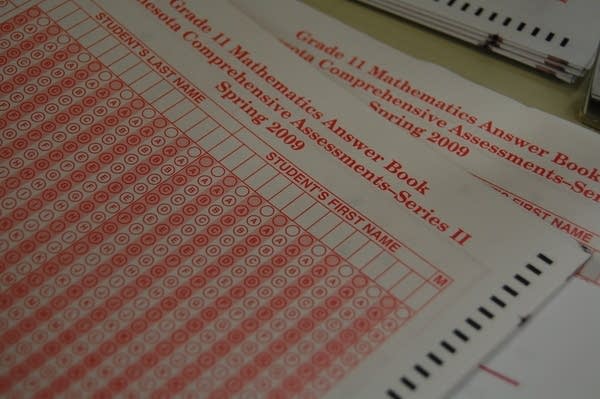State working on next generation of standardized tests

This is the last week for for schools to give all the MCA-II standardized tests they're required to for this year.
So far, the state Education Department says there have been no major hiccups for schools administering those tests.
But even as students continue taking the MCA-II's, the state is already getting to work on creating the MCA-III test, which is scheduled to be used in two years.

The main difference between the two generations of tests is that the state is hoping to have all -- or close to all -- MCA-III's administered via computer.
Create a More Connected Minnesota
MPR News is your trusted resource for the news you need. With your support, MPR News brings accessible, courageous journalism and authentic conversation to everyone - free of paywalls and barriers. Your gift makes a difference.
Currently, the state uses computer test for re-takes on the MCA-II's, along with a science test given to fifth and eighth graders, as well as high schoolers who have completed biology.
That science test does not count towards a student's or school's proficiency under state or federal standards.
Dirk Mattson, director of assessments and testing for the Minnesota Department of Education, says the new tests will also be "adaptive," meaning the computer will be able to gauge how students are performing and feed upcoming questions appropriately. That also means every student's test will be different.
Mattson says computer-based tests will get results back to teachers more quickly, so they can actually see how students performed and formulate future lesson plans based on areas where students lagged.
Currently, test scores aren't known until the summer, when most students are getting ready for their next grade.
A huge challenge for the department, though, is logistics: Making sure every school in the state has the capacity to put all of its students in front of computers for the tests.
MPR's Tom Crann spoke with education reporter Tom Weber about the new tests.
